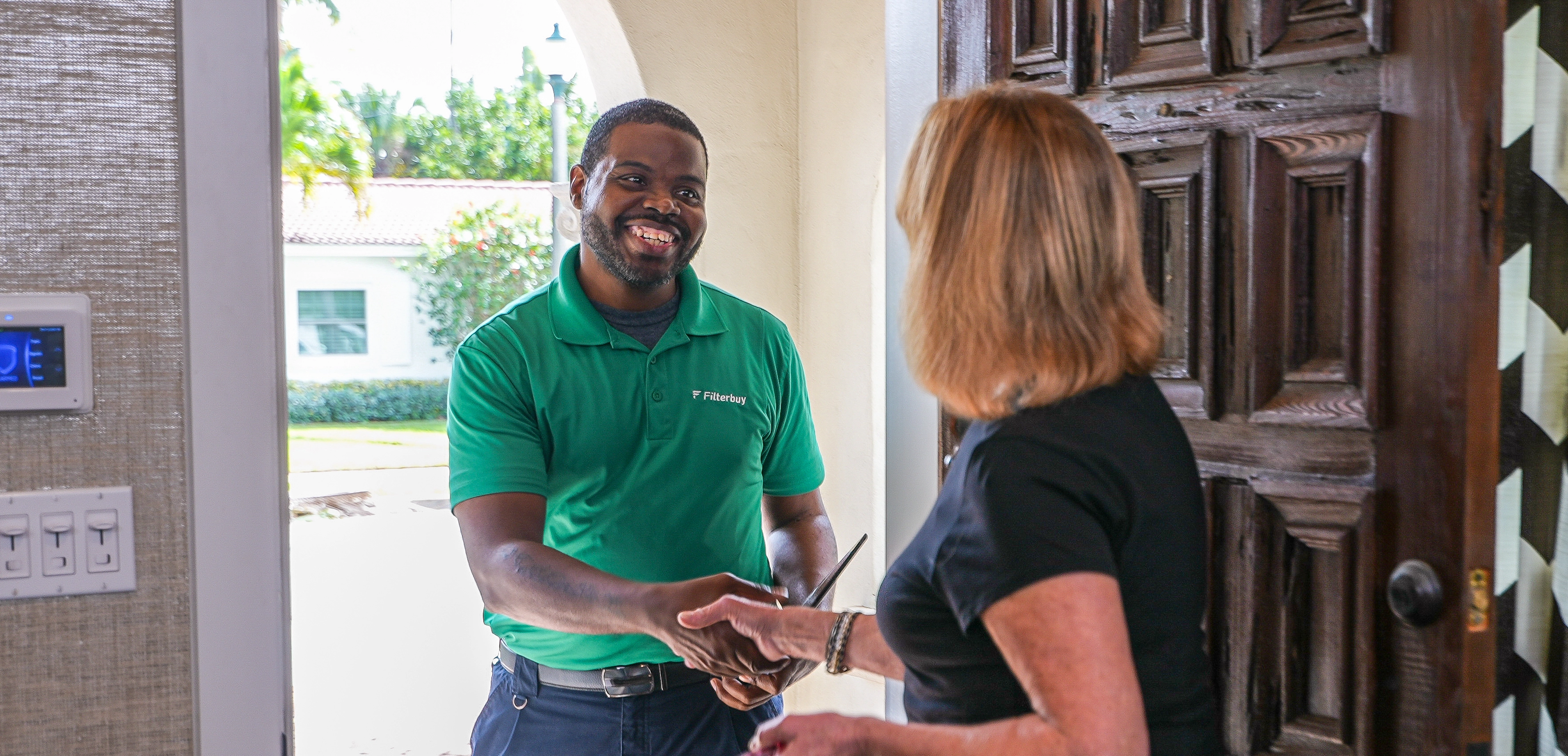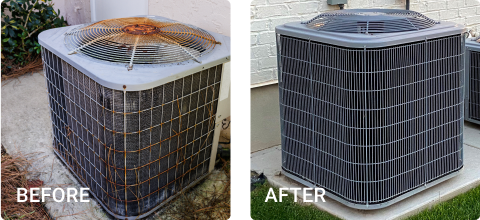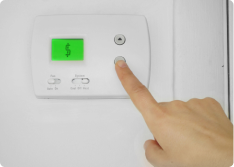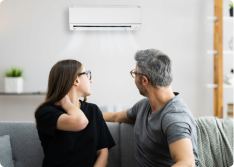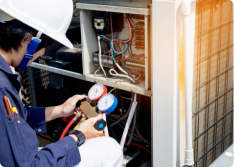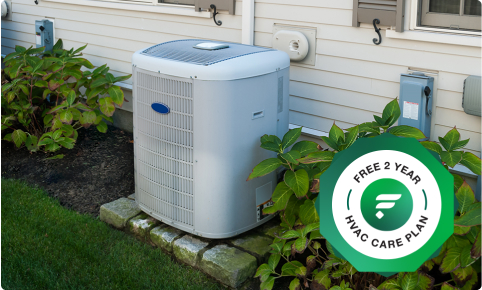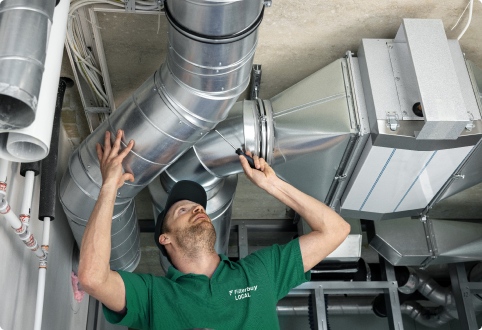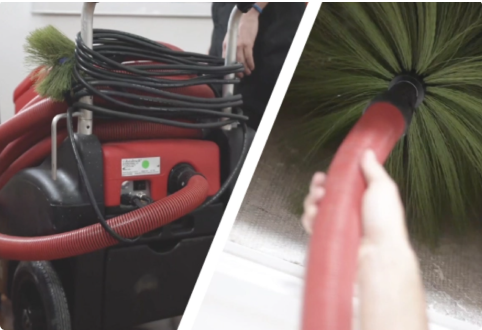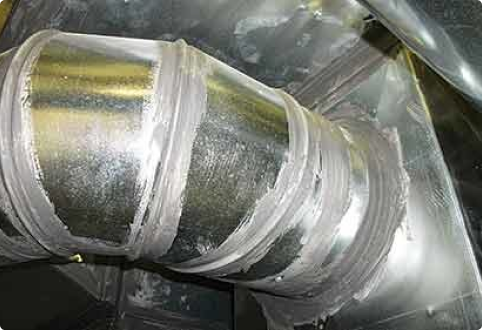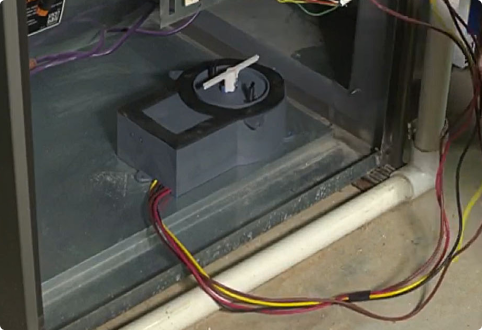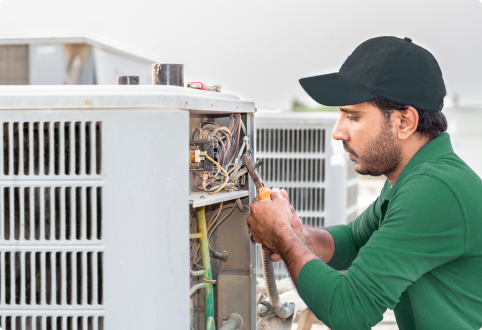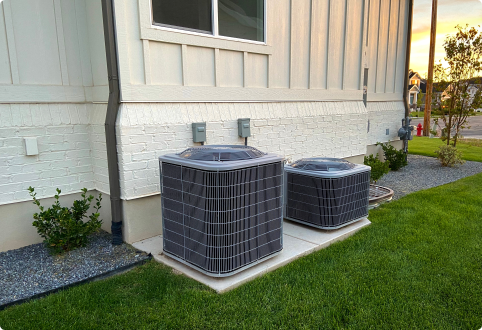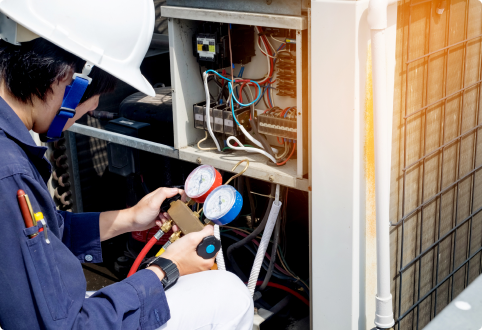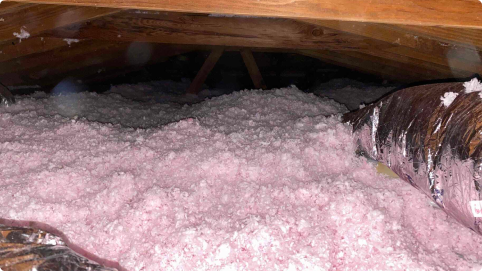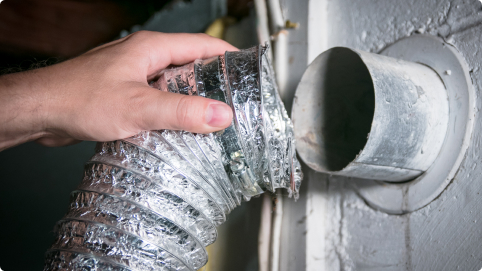Welcome to Filterbuy HVAC Solutions, the best HVAC system installation service company proudly serving in and near the greater Royal Palm Beach, FL area. Please let us know how we can help solve your Royal Palm Beach HVAC system installation needs with professional, affordable, and fast residential and commercial HVAC services by getting a free online quote or by giving our friendly HVAC specialists a call. We look forward to hearing from you!
HVAC Installation Royal Palm Beach FL
HVAC installation in Royal Palm Beach, Florida is an important consideration for any homeowner or business owner. Proper installation of a heating and cooling system can help to reduce energy costs, maintain comfortable indoor temperatures, and improve air quality.
Understanding the process of HVAC installation in Royal Palm Beach is essential to ensure that one obtains the best results from their system. This article will discuss the steps involved with installing an HVAC system in this location as well as provide information about reputable companies offering services related to the task.
Understanding The Basics Of HVAC Installation
Heating, ventilating, and air conditioning (HVAC) installation is a complex process that requires careful consideration. According to the U.S. Department of Energy, roughly half of all energy used in buildings goes toward heating and cooling costs. Therefore, properly installing an HVAC system can lead to significant savings on utility bills.
When selecting an HVAC system for your home or business, it’s important to understand exactly which type will best meet your needs. Factors such as size, climate zone, energy efficiency ratings, and local building codes should be considered when choosing the right system for you.
Moreover, proper sizing is essential for achieving maximum performance from any system – oversizing or under-sizing can result in decreased comfort levels and higher energy bills. With these factors considered carefully beforehand, Royal Palm Beach, FL residents can enjoy reliable indoor comfort with minimal hassle.
Selecting The Right System For Your Home Or Business
When it comes to selecting the right HVAC system for a home or business in Royal Palm Beach, FL, there are several factors to consider. The size of the space being heated and/or cooled should be taken into account along with any special climate control needs such as humidity levels.
Additionally, many systems can come with different energy efficiency ratings which may affect both cost savings and environmental impact. These considerations must be weighed carefully when deciding on an HVAC system installation. Once the perfect system has been chosen, it is time to prepare the site for installation.
Attention must be paid to making sure all necessary permits have been obtained and scheduling professional technicians who will properly install the system according to local codes and regulations.
Preparing The Site For Installation
First, the site for the HVAC installation in Royal Palm Beach, FL must be prepared. This involves ensuring that all utility services are present and accessible to accommodate a new unit.
The area should also be free of any debris or obstructions so that technicians can access necessary areas safely and efficiently. Furthermore, they will need to check foundations and walls to ensure proper support is available for the mounting of equipment components such as air handlers or furnace units.
Before work begins on installing the components of the system, it is important to make sure that safety protocols are followed at all times by using appropriate protective gear like gloves, goggles, and face masks.
Additionally, professionals should inspect wiring connections for signs of damage or wear before connecting them with other parts of the system. With these steps completed correctly, one can move forward with confidence into the next stage – installing the pieces necessary for optimal functionality.
Installing The Components Of The HVAC System
The installation of the components of an HVAC system requires certain steps to be taken for it to function correctly. Firstly, the unit must be properly installed and secured on its platform or base. This is generally done with metal brackets that are securely bolted into place.
After this has been accomplished, the refrigerant lines must be connected from the outdoor condensing unit to the indoor evaporator coil. Care should be taken when connecting these as any leak could cause a hazardous situation due to the presence of volatile chemicals used within them.
Additionally, all electrical connections should follow safety protocols as outlined by local codes for Royal Palm Beach, FL. Once all parts have been installed, checked, and tested for proper operation, the connection of the system to existing utilities can begin.
Connecting The System To Existing Utilities
The components of the HVAC system have now been installed properly. It is now time to connect these components with existing utilities, such as electricity and gas lines. This process requires a few steps that should be completed in order:
- First, check all parts for defects or any other issue that may prevent them from working correctly. If there are any issues, they must be taken care of before continuing.
- Next, turn off all power sources to avoid accidents during installation.
- Then secure the electrical wiring in place according to local safety codes and regulations. Make sure to ground each piece securely for added protection against electric shock hazards.
- Finally, install the necessary piping for water supply, drainage, fuel lines, etc., and make sure everything is connected tightly and safely without leaving any gaps or leaks in the process.
After all, connections are complete, double-check each one again to verify it is done correctly. Having gone through this procedure carefully ensures the proper connection of the HVAC system with existing utilities; this allows for the safe and efficient operation of the entire unit once testing and inspection are carried out on its various components.
Testing And Inspecting The System
Once the HVAC system has been installed, it is time to test and inspect it for any imperfections. Like a surgeon examining their patient, an experienced technician will perform thorough checks of all components before allowing operation.
From the air ducts to condensers and evaporators, no part should be overlooked in this critical phase – as if one misstep could spell disaster for the entire system. After that, every detail must be fine-tuned according to the manufacturer's specifications; otherwise, even minor irregularities can potentially lead to costly repairs down the line.
With so much riding on each connection and wire placement, double-checking becomes paramount. Once everything passes inspection, then and only then can a trained expert sign off on the successful installation of the new HVAC unit.
Completing The Installation
The installation of an HVAC system in Royal Palm Beach, FL requires careful planning and execution. To ensure the best possible results from the project, a qualified team should be hired to complete the job. This may include:
- An experienced contractor who can accurately assess the needs of the space
- A licensed electrician to wire up any necessary outlets or components
- A plumber to install air ducts, water lines, and other applicable piping
Once all parts are securely installed, it is important to conduct thorough tests on each component to guarantee that it functions correctly. All wiring should be checked for loose connections or faulty insulation, and any needed repairs should be made as soon as possible.
The performance levels of the system will also need to be monitored during this period so that any problems can be addressed quickly. With these steps completed, your HVAC system will be ready for use with minimal disruption from technical issues.
Moving forward into technical support and maintenance helps ensure optimal operation over its lifetime.
Technical Support And Maintenance
Technical support and maintenance are essential components of HVAC installation in Royal Palm Beach, FL. The primary purpose is to ensure that the systems continue to run optimally at all times. This can be done through regular inspection, cleaning, and adjustment of the system's various parts. Additionally, technicians should be on hand for emergency repairs if any part fails or needs replacing.
These services will help reduce energy costs and maximize comfort levels within the building. Adequate technical support is also vital when it comes to troubleshooting common problems with an HVAC system. In many cases, a simple repair may be enough to bring the unit back up to full working order. However, more complex issues may require specialized knowledge and expertise from a professional technician who can diagnose and fix these issues quickly and effectively before they cause further disruption or damage to the system.
To make sure these services are readily available, businesses should establish relationships with reliable contractors in their area who have experience servicing similar equipment. With this level of support in place, businesses can rest assured knowing their HVAC system will remain running smoothly for years to come. Taking proactive steps towards preventive maintenance is a key factor for the successful operation of any HVAC installation in Royal Palm Beach, FL.
Maintaining proper records throughout the lifespan of an HVAC system helps streamline future troubleshooting efforts as well as facilitate quicker responses from service personnel during emergencies or breakdowns. By keeping detailed logs of all service visits, including dates, descriptions of work performed, and parts replaced, businesses can easily identify potential points of failure while ensuring optimal performance over time with minimal downtime due to unforeseen circumstances.
Troubleshooting Common Problems
Taking some simple steps and performing regular maintenance checks can help to reduce the chances of an issue developing with a new system. Homeowners should be sure to read through the instruction manual before attempting any repairs or maintenance on their own; if they are unsure about anything, it is best to contact a qualified professional.
Regularly cleaning air filters and checking ducts for leaks will ensure that airflow is maximized throughout the building. One of the leading causes of breakdowns and malfunctions is unrestricted access by dirt, dust particles, and other debris that can clog up pipes and components within the unit.
Keeping things clean and free from obstruction will not only extend their lifespan but also enhance performance efficiency. With these measures taken, finding a reliable contractor becomes much simpler.
Finding A Qualified Contractor For HVAC Installation In Royal Palm Beach, FL
Troubleshooting common HVAC problems can be a daunting task. It is highly recommended that any repairs or replacements of the system should be done by a qualified contractor to ensure safe and efficient operation.
When it comes to finding such a contractor for installation in Royal Palm Beach, FL, it’s important to thoroughly research all available options. To start with, consumers should look into online reviews of local contractors as well as their certifications and licenses.
Consumers may also want to ask friends or family who have had similar work done recently for recommendations on reliable contractors in the area. Additionally, if possible, customers should contact several contractors directly and inquire about their experience level and pricing before making a final decision.
Taking the time to carefully consider each option will help ensure an informed selection process and a successful HVAC installation project from start to finish.
Frequently Asked Questions
How Often Should I Replace My HVAC System?
HVAC systems are a significant investment and require regular maintenance to keep them running efficiently.
Typically, the average lifespan of an HVAC system is 10-15 years, after which it should be replaced with a newer model for optimal performance.
In addition to replacement every 10-15 years, some manufacturers recommend replacing your unit if the cost of repairs exceeds 50% of the cost of replacement. Regularly checking in on your unit's performance can help determine when it is time to replace it or make necessary repairs.
What Is The Best Type Of HVAC System For My Home?
The best type of HVAC system for any home depends on several factors, including the size and design of the building, local climate, energy efficiency requirements, and cost.
A homeowner should consult with an experienced contractor to determine which type is most suitable for their particular needs.
An air conditioning specialist can assess the area to be cooled, identify potential problems, and suggest options that may provide sufficient cooling capacity at a reasonable cost. The main types of HVAC systems available include forced-air furnaces, heat pumps, geothermal units, and split ductless systems.
How Much Does A Typical HVAC Installation Cost?
A typical HVAC installation can be likened to a complex puzzle, as it requires the precision and skill of a professional technician. The cost will depend on several factors such as the complexity of the system, the type of equipment used, and labor costs in Royal Palm Beach FL. On average, these installations can range anywhere from $3,000-$5,000 depending on the scope of work needed for each home.
What Is The Difference Between A Residential And Commercial HVAC System?
When considering the differences between a residential and commercial HVAC system, there are several elements to consider.
Residential systems tend to be smaller than commercial ones, as they typically serve only one or two rooms at most while commercial systems can span multiple stories and larger spaces. Additionally, equipment such as compressors used in commercial units has higher power ratings compared to those found in residential units.
Further, due to the large size of many commercial buildings, special zoning considerations may need to be taken into account when installing an HVAC system to ensure that all areas are properly heated and cooled.
Finally, since businesses often operate around the clock, their HVAC systems require more frequent maintenance checks than a typical residential unit.
What Type Of Maintenance Is Required For My HVAC System?
Maintaining an HVAC system is essential for the longevity and efficiency of its operation. Comprehensive maintenance involves both scheduled inspections as well as any necessary repairs or replacements.
Scheduled maintenance should include inspecting all components including condensers, evaporators, filters, motors, belts, and bearings to ensure that everything is in good working condition. In addition, technicians can check refrigerant levels and clean coils to keep the unit running smoothly.
Any replacement parts needed will also be identified during the inspection and replaced accordingly. Regular maintenance helps reduce energy costs while avoiding major repair problems down the line.
What Does A New HVAC System Cost In Florida?
This aims to provide an analytical assessment of the costs associated with installing a new HVAC system in Florida.
It will offer insights into average pricing, factors influencing cost variation, and potential return on investment.
Further, it seeks to assist homeowners in making informed decisions concerning home cooling and heating upgrades by providing comprehensive information about financial implications.
Determining the Price of a Home Cooling and Heating Upgrade
Various factors significantly influence the cost of a home cooling and heating upgrade in Florida. These factors include the type of HVAC system, the size of the home, and local labor rates. The Energy Efficiency Ratings of systems also play a crucial role in determining costs. Additionally, Financing Options available to homeowners contribute to the overall expenditure on HVAC upgrades.
Why Does HVAC Installation Cost So Much?
The cost of HVAC installation often poses a considerable financial burden for many property owners. This seeks to explore the factors contributing to these high costs, including Equipment pricing, Labor rates, and Additional items such as ductwork or electrical upgrades.
An understanding of these elements offers valuable insights that can aid in making informed decisions regarding heating and cooling system installations.
Factors Influencing the Price of Heating and Cooling Systems
Several elements contribute to the overall cost of heating and cooling systems. These include unit size, brand, installation complexity, and regional living costs. Geographical implications significantly influence these factors. Different climates require varying degrees of energy efficiency, which in turn affects the cost of the system. For example, systems installed in regions with extreme weather conditions often demand higher energy efficiency levels. As a result, the initial investment costs for these systems are higher.
Where Is The Best Place To PutHVACc?
The installation location of Heating, Ventilation, and Air Conditioning (HVAC) systems significantly impacts energy efficiency, operational effectiveness, and overall system longevity.
This aims to explore optimal placement strategies for HVAC units by analyzing various factors such as building design, climate conditions, and insulation properties.
A comprehensive understanding of these dynamics will guide homeowners and industry professionals in making informed decisions about HVAC installations.
Deciding the Ideal Location for Your Heating, Ventilation, and Air Conditioning System
Determining the optimal location for a Heating, Ventilation, and Air Conditioning (HVAC) system necessitates careful consideration of factors such as the size of the property, energy efficiency requirements, and local climate conditions. Climate considerations significantly influence HVAC placement to ensure efficient system maintenance. Thus, an understanding of these aspects assists in identifying ideal locations for HVAC systems.
What Is The Most Expensive Part Of An HVAC System?
This explores the cost structure of Heating, Ventilation, and Air Conditioning (HVAC) systems. A detailed analysis will be conducted to identify the most expensive component within these units.
Factors such as initial purchase price, installation expenses, and long-term maintenance costs are considered in this comprehensive examination. The aim is to provide a clearer understanding of HVAC system expenditures for both industry professionals and consumers alike.
Understanding the Cost Structure of Heating, Ventilation, and Air Conditioning Units
A thorough analysis of the cost structure of Heating, Ventilation, and Air Conditioning units reveals a multitude of components contributing to the overall expense. Cost Efficiency Strategies can significantly reduce these expenses by optimizing resource utilization. Furthermore, Component Lifespan Factors play an essential role in determining the frequency and cost of system maintenance or replacement.
Is It Better To Put HVAC in the Attic Or Basement?
This provides a comprehensive analysis of the optimal placement of HVAC systems within residential structures. It focuses specifically on attic versus basement locations.
The discussion incorporates an evaluation of various factors such as energy efficiency, cost implications, and maintenance requirements.
It aims to guide homeowners and construction professionals in making informed decisions about HVAC installation for improved home comfort and sustainability.
Pros and Cons of Different HVAC Locations
The benefits and drawbacks of various HVAC placements, specifically in the attic or basement, require careful consideration to ensure optimal system performance and energy efficiency. The Energy Efficiency Comparison between these options reveals significant differences. Furthermore, a comprehensive Installation Challenges Discussion is necessary as both locations present unique obstacles that can impact the overall effectiveness and longevity of the HVAC system.
Is It Better To Put HVAC in the Attic?
This undertakes a comprehensive analysis of the benefits and drawbacks of attic-based Heating, Ventilation, and Air Conditioning (HVAC) systems.
It aims to provide a balanced perspective on this matter by considering various factors such as installation costs, energy efficiency, maintenance requirements, and potential impact on home value. The objective is to guide homeowners in making informed decisions regarding HVAC system placement.
Evaluating the Pros and Cons of Attic-Based Heating and Cooling Systems
The advantages and disadvantages of installing heating, ventilation, and air conditioning systems in the attic warrant careful consideration for homeowners seeking optimal indoor climate control. Installation challenges can include limited accessibility and space constraints. However, such placement may increase energy efficiency by reducing ductwork length and thermal losses, potentially resulting in lower energy consumption and cost savings over time.
Does Adding Hvac Increase Home Value?
This explores the potential correlation between the installation of Heating, Ventilation, and Air Conditioning (HVAC) systems and an increase in residential property value.
Through a comprehensive review of existing literature, market trends, and case studies, this paper aims to provide insights into whether HVAC system installations significantly contribute to enhanced real estate value.
Impact of an HVAC System on Property Worth
The inclusion of a modern HVAC system significantly influences property value, often leading to an increased market price due to enhanced comfort and energy efficiency. Notably, energy efficiency improvements can lower utility bills, contributing to the property's appeal. Additionally, HVAC lifespan considerations become crucial as extended service life indirectly boosts home value by reducing future replacement or repair costs.
Are HVAC Vents Better on the Ceiling Or Floor?
The positioning of HVAC vents significantly influences the efficiency and effectiveness of heating, ventilation, and air conditioning systems. This aims to conduct a comparative analysis between ceiling and floor vent placements in terms of energy efficiency, cost-effectiveness, comfort level, and ease of installation.
The objective is to provide insightful data that can guide homeowners or building designers in making informed decisions about optimal vent placement.
Comparing the Advantages and Disadvantages of Different Vent Placements
To ascertain the optimal placement of HVAC vents, a comparative analysis of the advantages and disadvantages associated with different vent placements is necessary. Key factors for consideration include ventilation efficiency and placement aesthetics. Through comparison, an understanding can be gained of how vent position may impact the overall effectiveness and visual appeal of installed HVAC systems.
What Is The Disadvantage Of Having Ducts In The Ceiling?
This explores the potential drawbacks of installing air ducts in ceiling spaces. Several aspects are evaluated, including issues related to energy efficiency, system maintenance, and indoor air quality.
The detailed analysis aims to provide a comprehensive understanding of these challenges, thereby assisting stakeholders in making informed decisions about HVAC system placement.
Potential Issues with Overhead Air Ducts
One significant concern regarding overhead air ducts pertains to the potential for increased energy consumption due to heat loss, particularly in residential properties with high ceilings. Duct Leakage Consequences can include significant thermal inefficiencies, exacerbating this issue. Ceiling Insulation Impact on these systems can further compromise their performance, leading to escalated costs and a larger carbon footprint.
How Many HVAC Vents Should Be In A Room?
This explores the crucial subject of optimal HVAC vent allocation in a room. It investigates various factors influencing this decision, including room size, layout, and usage purpose.
By examining existing guidelines and industry practices, it aims to provide an informed perspective on achieving efficient heating, ventilation, and air conditioning performance through strategic air duct placement.
Determining the Optimal Number of Air Ducts in a Space
The optimal number of air ducts in a given space hinges on several factors including room size, layout, and the specific heating and cooling requirements. Successful Duct Placement Strategies emphasize a balanced distribution of vents to ensure effective airflow. To augment Ventilation Efficiency Tips, understanding the role of these elements in maintaining indoor air quality is crucial for achieving optimal HVAC system performance.
Are HVAC ducts Better In Attic Or Crawl Spaces?
This undertakes an objective analysis of HVAC duct placement. Specifically, it contrasts installations in attics versus crawl spaces. The discussion encompasses factors such as energy efficiency, cost-effectiveness, and maintenance requirements.
Through comparative evaluation of these elements, it aims to provide a comprehensive understanding of the advantages and disadvantages associated with each location choice for HVAC ducts.
Evaluating the Pros and Cons of Different Installation Locations
The advantages and disadvantages of HVAC duct installation in either the attic or crawl space necessitate thorough evaluation for optimal system performance. Factors such as ductwork efficiency and installation costs play pivotal roles. High ductwork efficiency is often found in attic installations, though at higher costs. Conversely, crawl space installation tends to be cost-effective but may compromise on ductwork efficiency.
What Is The Best Type Of HVAC ductwork?
In the realm of heating, ventilation, and air conditioning (HVAC) systems, the selection of ductwork plays a pivotal role in performance and efficiency.
This comparative aims to elucidate the optimal type of HVAC ductwork by examining various options based on criteria such as durability, cost-effectiveness, and energy efficiency. The findings will provide insightful guidance for professionals in the HVAC industry seeking to maximize system efficacy.
Comparing Different Ductwork Options
A comparative analysis of various ductwork options reveals distinct advantages and drawbacks for each type in terms of efficiency, durability, and cost. This analysis displays significant variations in Ductwork Efficiency and Maintenance Requirements.
Flex ducts, sheet metal ducts, and fiberboard ducts are the three options that were considered. Each type displays unique characteristics necessitating a detailed examination to determine the most suitable option based on specific application needs.
The efficiency of ductwork is an important factor to consider. Flex ducts are known for their ability to bend and conform to different spaces, making them a flexible option. Sheet metal ducts, on the other hand, are known for their durability and ability to maintain airflow. Fiberboard ducts offer a cost-effective solution but may not be as efficient as the other options.
Maintenance requirements are also an important consideration. Flex ducts may require more frequent cleaning due to their tendency to accumulate dust and debris. Sheet metal ducts are relatively easy to clean and maintain. Fiberboard ducts, however, may be more susceptible to damage and may require more frequent repairs or replacements.
In terms of cost, flex ducts are often the most affordable option. Sheet metal ducts tend to be more expensive due to the cost of materials and installation. Fiberboard ducts offer a middle ground in terms of cost.
Conclusion
The installation of an HVAC system is an important decision that can affect the comfort and energy efficiency of one's home. Choosing the right size, type, and brand of a system for individual needs is key to ensuring optimal performance. The cost of a typical HVAC installation in Royal Palm Beach, FL will vary depending on factors such as materials used and labor costs.
Regular maintenance is also essential to maintaining your unit's longevity - like tuning up a car engine every so often - keeping it running smoothly and efficiently for many years to come. As with any major purchase or undertaking, it pays to do research before investing in a new HVAC system; it can be likened to choosing the best diamond from among a selection of sparkling gems.
Here is the nearest branch location serving the Royal Palm Beach FLarea…
Filterbuy HVAC Solutions - West Palm Beach FL
1655 Palm Beach Lakes Blvd ste 1005, West Palm Beach, FL 33401
(561) 448-3760
https://maps.app.goo.gl/6HwwNiD89ABrZsk59

.webp)
.webp)
.webp)
.webp)






